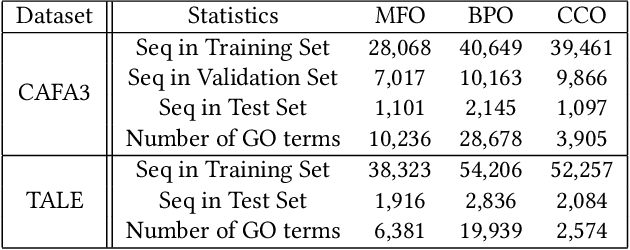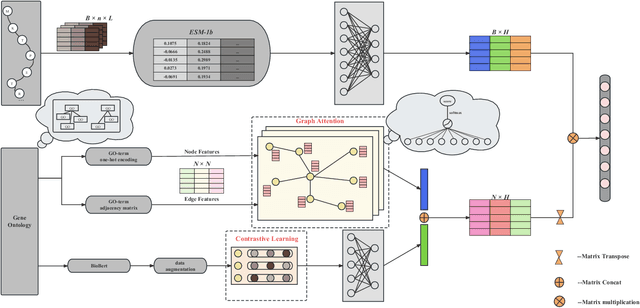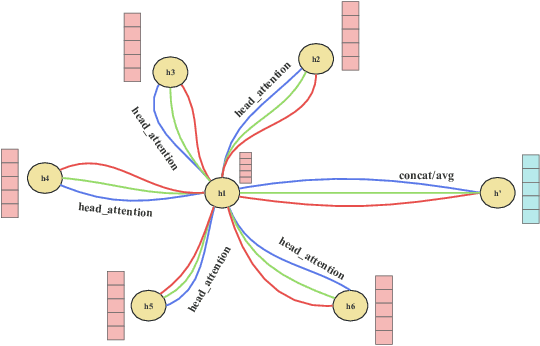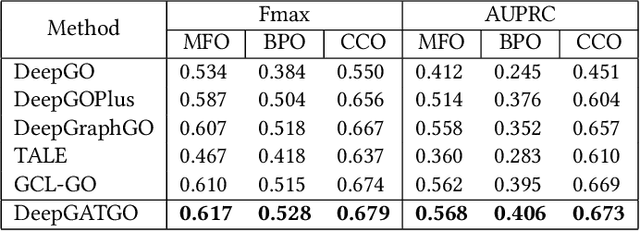DeepGATGO: A Hierarchical Pretraining-Based Graph-Attention Model for Automatic Protein Function Prediction
Paper and Code
Jul 24, 2023



Automatic protein function prediction (AFP) is classified as a large-scale multi-label classification problem aimed at automating protein enrichment analysis to eliminate the current reliance on labor-intensive wet-lab methods. Currently, popular methods primarily combine protein-related information and Gene Ontology (GO) terms to generate final functional predictions. For example, protein sequences, structural information, and protein-protein interaction networks are integrated as prior knowledge to fuse with GO term embeddings and generate the ultimate prediction results. However, these methods are limited by the difficulty in obtaining structural information or network topology information, as well as the accuracy of such data. Therefore, more and more methods that only use protein sequences for protein function prediction have been proposed, which is a more reliable and computationally cheaper approach. However, the existing methods fail to fully extract feature information from protein sequences or label data because they do not adequately consider the intrinsic characteristics of the data itself. Therefore, we propose a sequence-based hierarchical prediction method, DeepGATGO, which processes protein sequences and GO term labels hierarchically, and utilizes graph attention networks (GATs) and contrastive learning for protein function prediction. Specifically, we compute embeddings of the sequence and label data using pre-trained models to reduce computational costs and improve the embedding accuracy. Then, we use GATs to dynamically extract the structural information of non-Euclidean data, and learn general features of the label dataset with contrastive learning by constructing positive and negative example samples. Experimental results demonstrate that our proposed model exhibits better scalability in GO term enrichment analysis on large-scale datasets.
 Add to Chrome
Add to Chrome Add to Firefox
Add to Firefox Add to Edge
Add to Edge